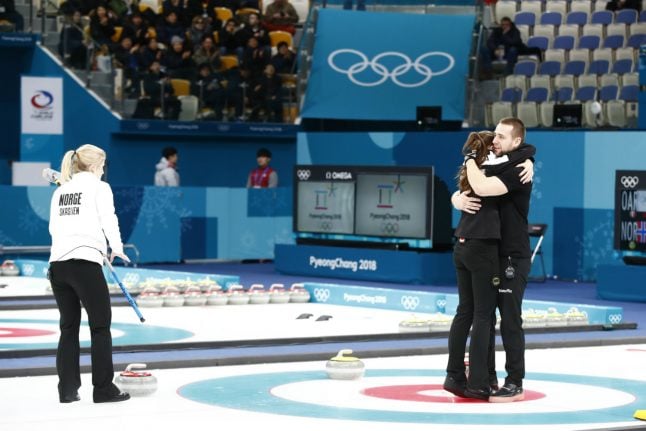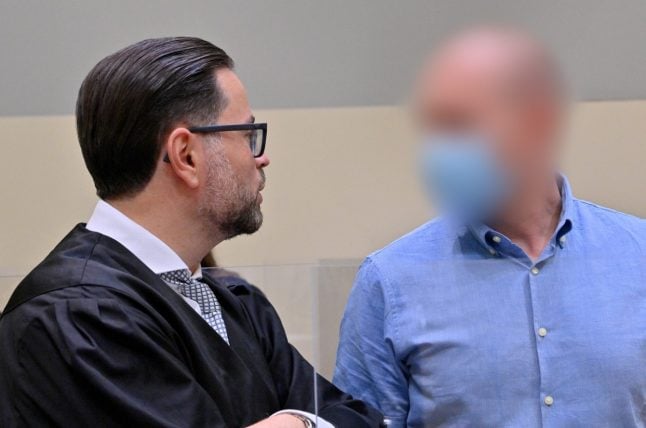Alexander Krushelnitsky's failed drug test shook the Pyeongchang Olympics on Monday, a week after he won bronze with his wife, Anastasia Bryzgalova.
Now Norway's Magnus Nedregotten has called on organisers and the Court of Arbitration for Sport (CAS) to expedite the process so he and partner Kristin Sasklien can learn if they have been promoted to third.
“Knowing that we may have been robbed and having to wait to see what happens is obviously emotional, and very stressful,” said Nedregotten, whose medal hopes were dashed after an 8-4 defeat by the Olympic Athletes from Russia (OAR) pair.
“Firstly, he is not guilty before he is convicted,” he added. “All we know is it appears that he had an illegal substance in his body during competition.
“But (if guilty), the preferred option would be to receive the bronze medal at some point during the remainder of the Olympics. Receiving the medals this week would definitely be better than in a year's time.”
Nedregotten revealed his subsequent shock at learning that Krushelnitsky had tested positive for a banned substance.
“At first the main feelings were anger,” he said. “We've been struggling through the Olympics, trying hard to reach our goal, which was a medal.
“Now knowing that they may have had an advantage against us in our games through cheating, feels horrible,” added Nedregotten.
“If (Krushelnitsky is found guilty) then they've robbed us of our moment of glory, receiving our medal in the stadium. That's not cool, that's hard to accept, feeling that you've been kept out of the light.”
A source told AFP he had taken the banned drug meldonium — the same substance that earned Russian tennis star Maria Sharapova a suspension.
It is designed to treat heart problems and diabetes and can increase endurance and recovery.
But many observers and even Olympic curlers themselves were stunned and asked what role performance-enhancing drugs could possibly have in the slow-moving sport.
Canada's Brent Laing said: “Beer and Advil are the only painkillers I've ever heard of for curling.”
Nedregotten, however, thinks otherwise.
“It could have benefited those guys (OAR) as they had a really late game when they lost their semi-final,” he said.
“Then they were playing early the next morning against us in the bronze match.
“I know in my case I would have liked to be more fresh in some of those games and have more energy, at least mentally.”
READ ALSO: 'Flying moustache' leads Norway to Olympic ski jump gold



 Please whitelist us to continue reading.
Please whitelist us to continue reading.